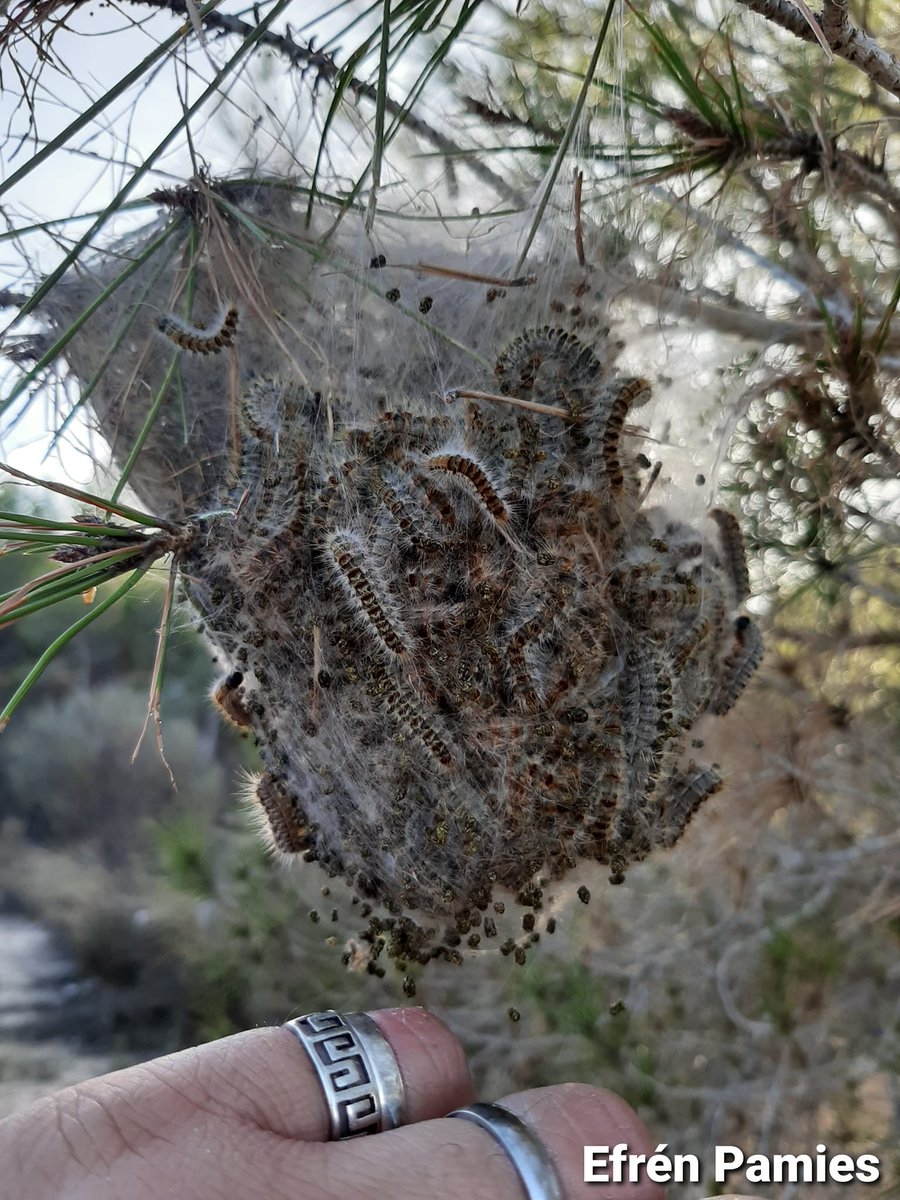Last Friday MeteOrihuela issued a cautionary warning given the dates: in the Alicante municipality of Bigastro, processionary caterpillars were seen over the weekend, both in their small, silk bags and on the ground. These worms, potentially dangerous for dogs, proliferate in pine trees with the arrival of spring and rising temperatures, which this year appeared before the last weekend of January.
In non-allergic people, contact with the processionary caterpillar can cause irritation, however with dogs you have to be a little more careful since it can be potentially fatal for them. It is not the first year that the presence of the processionary has been brought forward due to climate change, although January would usually be too early for them.
The warning appeared on the social network X (formerly Twitter) ‘MeteOrihuela’ that wrote of this event in Vega Baja. The early appearance of this caterpillar once again raises alarm bells about the possible consequences of the increase in temperatures in the province of Alicante and the eastern Mediterranean and brings into focus the need for us all to act against climate change.
The caterpillars have also been seen in Orihuela, specifically on the Cruz de la Muela Trail, where the authorities notified dog owners who were walking their dogs through the green areas.
What is the processionaryCaterpillar?
The Thaumetopoea pityocampa , known as the processionary caterpillar, is a species of defoliating lepidopteran which is very common in pine forests in southern Europe, Asia Minor and north Africa. It is the most important defoliating insect in pine forests in Spain. Defoliators are insects that, in their caterpillar phase, feed on the softer parts of the leaves, leaving only the veins or harder parts.
The processionary is covered with highly stinging hairs that break off and float in the air, which is why they can also cause great irritation to humans when breathing them in, or coming into contact with them through the ears, nose and throat.
Note: You should not attempt to move or destroy them, as they form an essential part of the ecosystem, the advice is to avoid them.





